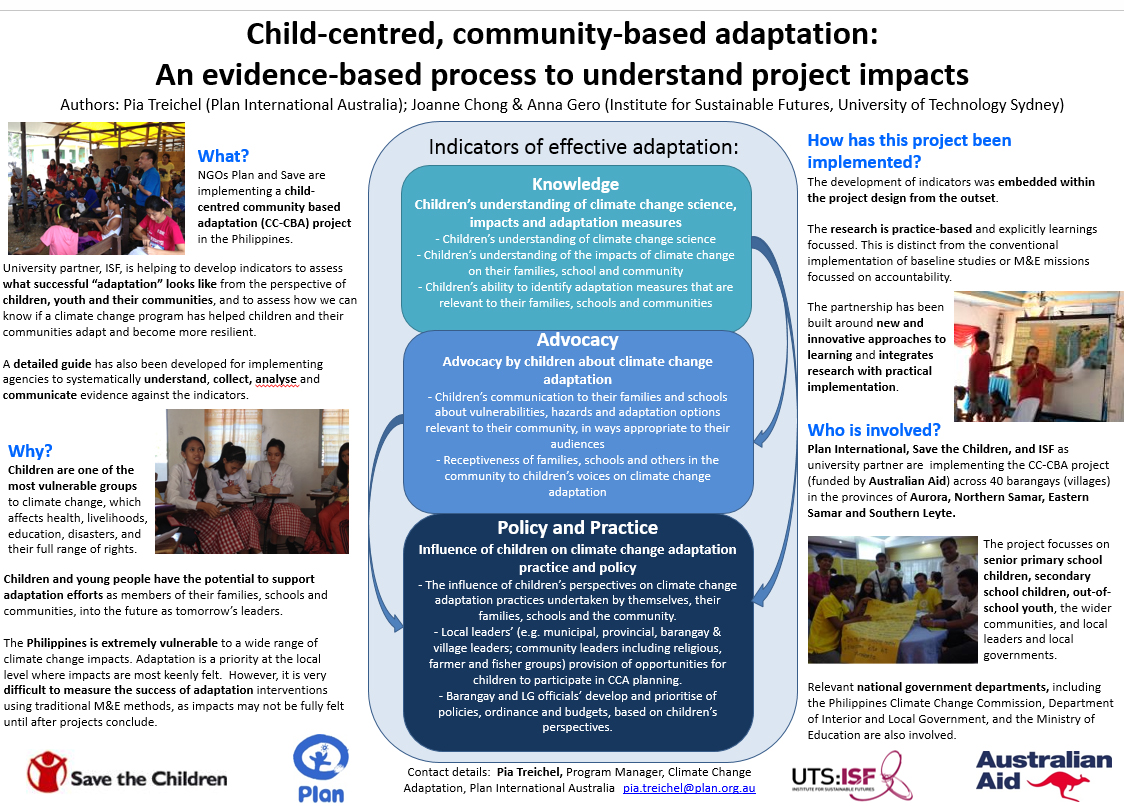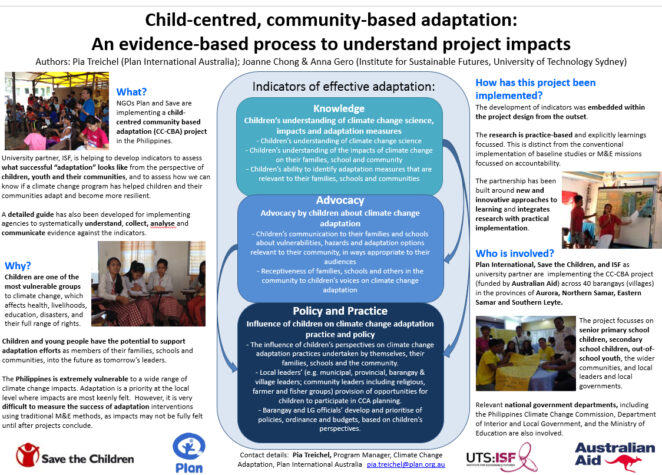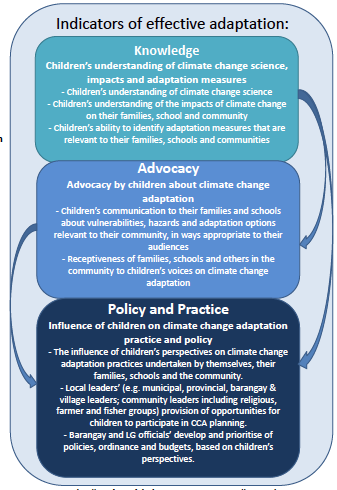Case-study /
Child-centred, Community-based Adaptation: An Evidence-based process to Understand Project Impacts


The 9th International Conference on Community-Based Adaptation (CBA9) took place in Nairobi, Kenya, from April 24-30 2015. The CBA series of conferences focus on the latest developments in community-based adaptation to climate change. The theme of this year’s event was “Measuring and enhancing effective adaptation”, and all the posters presented at the conference were summaries of projects related to the conference theme. This poster is one of the posters featured at the conferance. For more information about CBA9, visit: www.cba9.org. If you want to learn more about community based adaptation, please visit the GICBA platform on weADAPT.
Introduction
NGOs Plan and Save are implementing a child-centred community based adaptation (CC-CBA) projectin the Philippines. University partner, ISF, is helping to develop indicators to assess what successful “adaptation” looks like from the perspective of children, youth and their communities, and to assess how we can know if a climate change program has helped children and their communities adapt and become more resilient. A detailed guidehas also been developed for implementing agencies to systematically understand, collect, analyseand communicateevidence against the indicators.
Why?
Children are one of the most vulnerable groups to climate change, which affects health, livelihoods, education, disasters, and their full range of rights. Children and young people have the potential to support adaptation effortsas members of their families, schools and communities, into the future as tomorrow’s leaders.The Philippines is extremely vulnerable to a wide range of climate change impacts. Adaptation is a priority at the local level where impacts are most keenly felt. However, it is very difficult to measure the success of adaptation interventions using traditional M&E methods, as impacts may not be fully felt until after projects conclude.
Implementation
– The development of indicators was embedded within the project design from the outset.
– The research is practice-basedand explicitly learnings focussed. This is distinct from the conventional implementation of baseline studies or M&E missions focussed on accountability.
– The partnership has been built around new and innovative approaches to learning and integrates research with practical implementation.

Picture from poster. Click to enlarge.
Who is Involved?
Plan International, Save the Children, and ISF as university partner are implementing the CC-CBA project (funded by Australian Aid) across 40 barangays (villages) in the provinces of Aurora, Northern Samar, Eastern Samar and Southern Leyte.The project focusses on senior primary school children, secondary school children, out-of-school youth, the wider communities, and local leaders and local governments. Relevant national government departments,including the Philippines Climate Change Commission, Department of Interior and Local Government, and the Ministry of Education are also involved.
Contact:
This poster was drafted and produced by Pia Trechel, Joanna Chong and Anna Gero.
